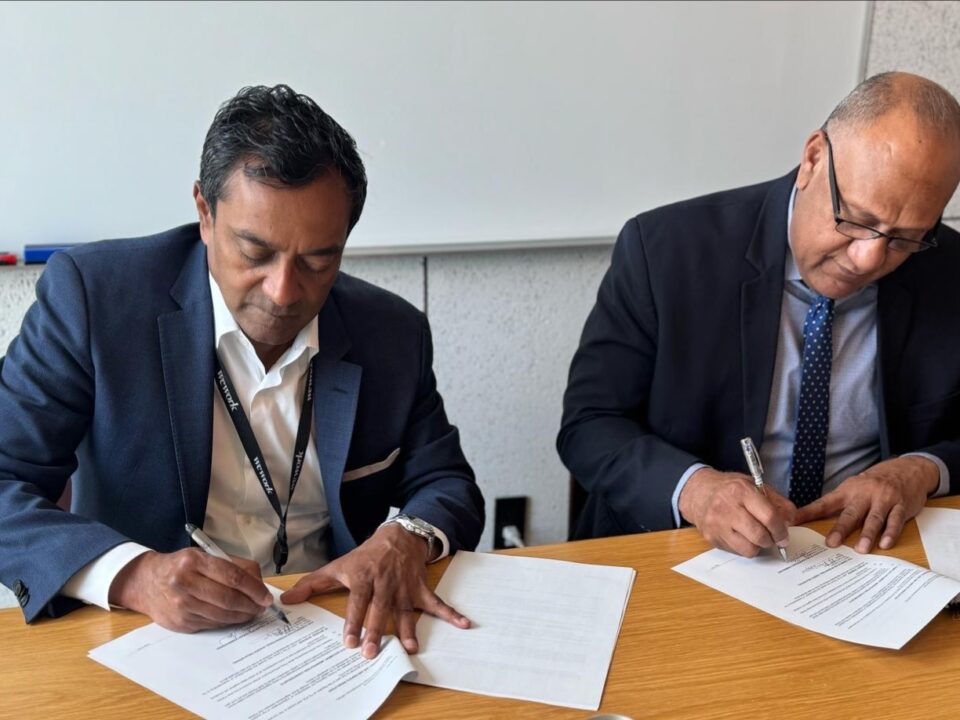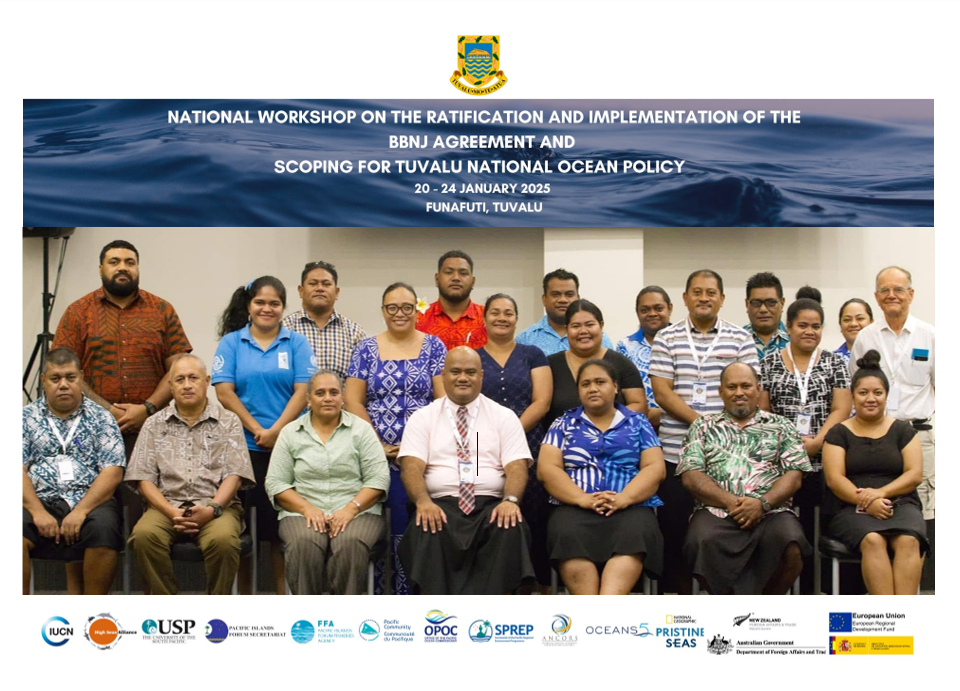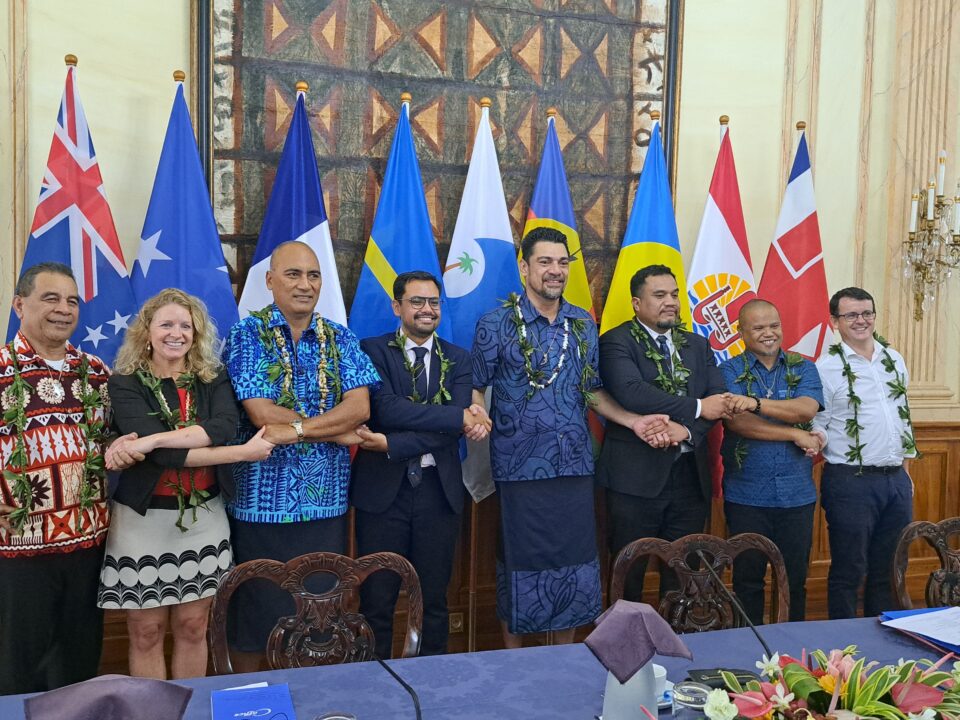
The Pacific Islands States who believe that the Ocean plays an integral part in the climate system say that the Blue Pacific Continent they have stewardship of cannot afford the risks of exceeding 1.5 degrees Celsius above pre-industrial levels.
These sentiments have been shared time and again by Pacific Islands representatives at COP 24 and those who have presented in a myriad of side events at the Pacific and Koronivia Pavilion in Katowice, Poland.
Samoa Prime Minister Tuilaepa Aiono Sailele Malielegaoi said “The recent IPCC 1.5 degrees Special Report shows that a 1.5 degrees Celsius of warming is not just a limit for Small Islands Developing States, but it is a limit for everyone.”
“From extreme weather events to sea level rise, from slowed economic growth to biodiversity loss, the report speaks to the risks of exceeding 1.5 degrees Celsius. For our Blue Pacific continent, it is a risk we cannot afford,” he emphasized.
Prime Minister Tuilaepa expressed concerns that the coral reefs, which provide about 70 percent of Pacific islanders food protein and which also helps provide protection to at least 50 per cent of the Pacific peoples living within 1.5km of the coast, will be severely degraded at 1.5°C of warming, and will all but disappear temperatures are allowed to rise to 2°C.
Speaking at the Office of the Pacific Ocean Commissioner-organised side event on “Understanding the Ocean and Climate Crosswalk- a Pacific Perspective” held at the Pacific and Koronivia Pavilion, Prime Minister Malielegaoi said “the adverse impacts of climate change and ensuring the conservation and sustainable use of the ocean and its resources were two key and interlinked priorities for the Blue Pacific continent and its peoples.”
“We cannot speak about the ocean in isolation, as it is an integral part of our climate discussions, and Ocean and Climate Action are two sides of the same coin ” he said.
Prime Minister Malielegaoi was joined at the High Level Panel discussion by UNSG’s Special Envoy on Ocean Ambassador Peter Thomson, Kingdom of Norway’s Ministry of Foreign Affairs Policy Director Georg Borsting, Conservation International President Jennifer Morris, Secretariat of the Pacific Regional Environment Programme Director General Kosi Latu, Fiji Commerce and Employers Federation President Sandeep Chauhan and Dena Seidel, Okeanos Foundation‘s chief operating officer.
Pacific Islands Forum Deputy Secretary General Cristelle Pratt facilitated the event on behalf of the Pacific Ocean Commissioner and Pacific Islands Forum Secretariat Secretary General – Dame Meg Taylor.
Ambassador Thomson commended the Pacific for taking leadership in crucial issues such as Ocean and Climate Change and offered that “We cannot talk about climate without talking about ocean.” He highlighted “the urgent need for the Paris Climate Agreement and the UN 2030 Sustainable Development Goals to be actioned immediately.”
Ambassador Thomson stressed that the Pacific and its people are in the front line of this climate crisis and said “We are like canaries in a coal mine, if we fall over, the whole world will fall over, but we are the ones that will feel it first.” He said the linkage between ocean and climate has been recognised and the COP 25 is being tagged as the “Ocean COP.”
Mr Latu says that human activities are causing hazard risks to both the ocean and climate. “We need to think about what humans are doing, it is human activities that are causing all these problems.”
Norway’s representative Mr Borsting talked about Norway’s investments in ocean governance in the Pacific region and its partnership with Fiji on the COP23 Presidency initiated Ocean Pathway in the UNFCCC COP processes. “We do believe this is an important effort in bringing the ocean agenda into the political discussions under the climate convention. It’s not easy and things take time in this process, but I believe the stars are aligning well for progress and achievements in the coming year and for COP 25. We do need to find better solutions in the climate and ocean nexus, both in mitigation and adaptation, and the Pacific region is crucial in partnerships to make progress to that effect.”
Ms Morris said regional cooperation was needed since there was more that needed to be done in ocean and climate change. She said that “As an NGO the opportunities to bring financial and technical resources needed to support Pacific Islands countries individual and collective aspirations and efforts is crucial,” she said.
Ms Siedel said they were ready to assist the Pacific Leaders in training their peoples “to return to old ancient ways of open sea transport and navigation.” The Foundation has a fleet of 15 canoes or vakas and have to date trained 100 Pacific islanders to be open ocean sailors and to help the Pacific regain the traditional knowledge of sailing. The Okeanos initiative meets 11 of the 17 Sustainable Development Goals.
Mr Chauhan speaking from the perspective of the Private Sector said that “just as the Pacific relies on the ocean for economy, livelihoods and well-being, the private sector can only be viable and survive – if the people survive.”
“While I am not an expert on ocean nor an expert on climate change issues, I do know the world is changing and that it needs our help.”
He lamented that “even after 24 years of climate change negotiations it seems we are still far from saving humanity.” Concluding that “Now is the time to act, otherwise there will be nothing to negotiate for.”
You can watch a video of the full Ocean and Climate Crosswalk event here.
Published: https://www.forumsec.org/



